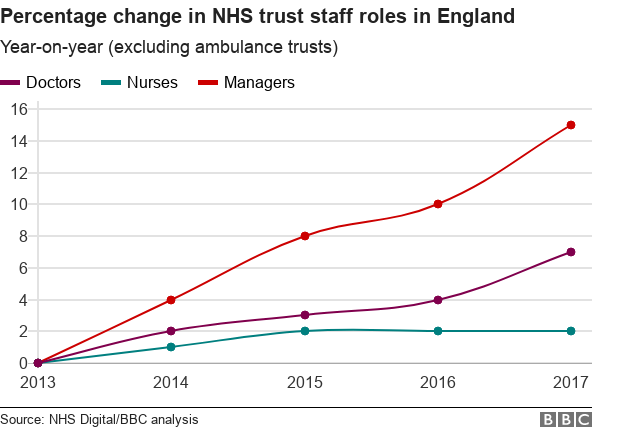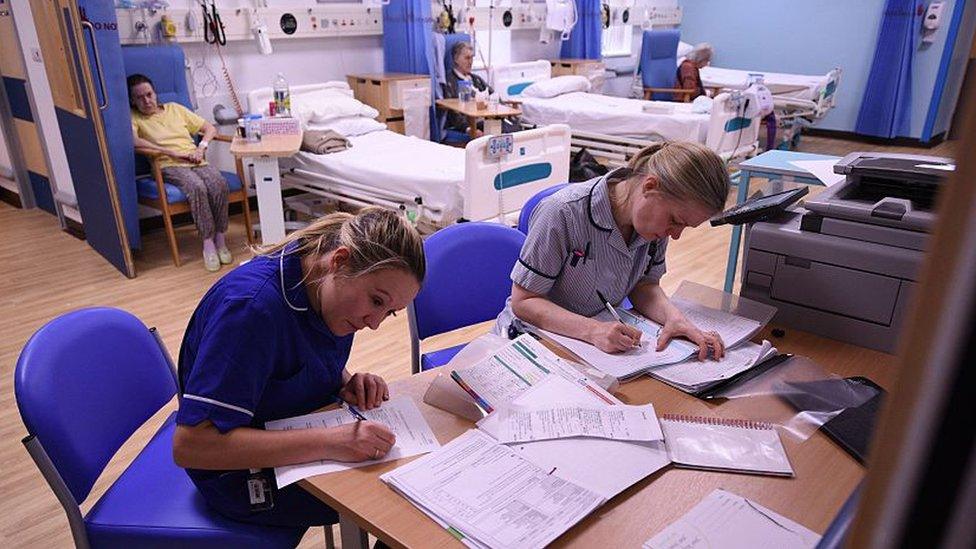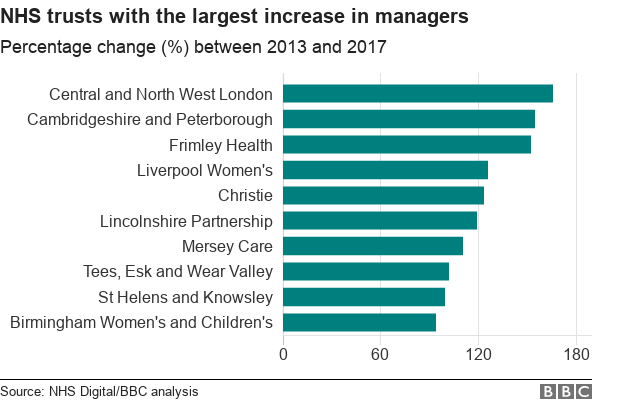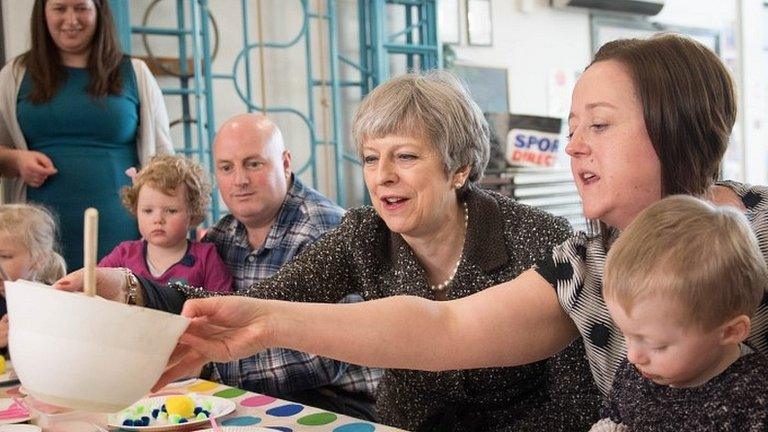Hospitals recruit managers faster than doctors and nurses
- Published
- comments

There are about 3,600 more management staff in NHS trusts than in 2013
Hospitals in England have recruited managers at a higher rate than doctors and nurses, BBC analysis of official figures reveals.
Since 2013, an additional 3,600 managers started at NHS trusts compared with 8,300 more doctors and 7,000 more nurses.
It means management increased by 16% while the number of doctors and nurses increased by 8% and 2% respectively.
NHS Improvement said there were still "too few" managers.
However the Royal College of Nursing (RCN) has described the figures as "galling" and said a failure to train enough nurses had contributed to a "shortage".
Hospitals in England have been coming under increasing pressure as the number people of seeking care has risen steadily.
In March A&E waiting times reached their highest ever levels.
The BBC England Data Unit analysed figures collected by NHS Digital, external. The showed that between December 2013 and December 2017 more than three quarters of NHS trusts, excluding ambulance services, in England increased the number of people employed as managers.

"Nurses on the NHS frontline will find these figures galling," said Janet Davies, chief executive and general secretary of the Royal College of Nursing.
"The health service must be well run but it is nurses who are responsible for the vast majority of hands-on patient care.
"Low pay, increased pressure on the NHS and the failure to train enough nurses over a long period has contributed to today's nurse shortages."

The Royal College of Nursing says there are currently 40,000 nursing vacancies
NHS trusts are responsible for providing acute care in hospitals and other services such as mental health facilities.
Collectively these trusts employ more than 1.1 million staff in England, with managers making up about 2% of the total workforce.

You may also be interested in:

Nine NHS trusts have more than doubled the number of managers they employ in the last five years.
The Central and North West London Trust saw the biggest increase with 253 people employed in managerial roles in 2017, compared to 95 people in 2013.
The trust said its managerial figure for 2013 was "too low" and had been adjusted.
A spokesman added: "We do have more managers than five years ago as we won new service bids, whilst investment in information and communications technology and patient record systems have also added a small number."

In 2017 the NHS was ranked as the most safe, affordable and efficient health service in the world by the Commonwealth Fund, a US based think-tank, while the NHS's own five year plan, external says that for every pound spent by the NHS, two pence is spent on administration costs.
A NHS Improvement spokesman said: "Research consistently shows that rather than having too many managers, the NHS actually has too few given the complexity of delivering modern healthcare. Many of these managers will also undertake clinical work.
"But this is not an either/or situation. The NHS needs world-class nurses, doctors and a range of support staff in addition to excellent management to provide the best care possible."
NHS Providers, which represents acute, community and mental health services, said the number of managers was still lower than at the beginning of the decade.
Deputy chief executive Saffron Cordery, said: "These figures take 2013 as the starting point, but this followed a huge shakeout of managers in the preceding years.
"The number of managers has started to recover, but according to the most recent statistics, the number of managers is still 13% lower than in May 2010."
- Published17 January 2018

- Published13 June 2019

- Published29 March 2018

- Published14 July 2017
